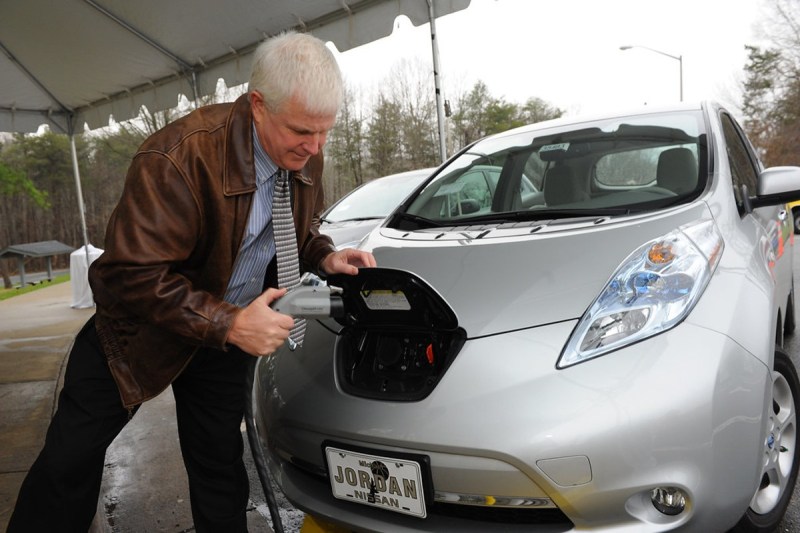[ad_1]
So that you’ve bought or are contemplating buying an electrical car. Congrats! With the U.S. Division of Transportation green-lighting plans for 75,000 miles of freeway EV charger stations throughout all 50 states, Washington, D.C., and Puerto Rico (per CNBC), charging ought to get simpler and simpler over the subsequent 5 years. The query stays, nevertheless, the place do you juice up?
Although there are, based on U.S. News & World Report, nearly 50,000 charging stations scattered throughout the nation and over 117,000 electrical car provide tools ports on the market, most of those are going to suck extra time than vitality. The big majority of immediately’s EV charging stations are Degree 2 ports incapable of a fast cost, delivering electrical energy at a slug-slow pace of 8.3 kilowatts. Charging an EV at these stations averages 20-30 miles of battery vary per hour, which interprets to wherever between six to 12 hours to completely cost an EV utilizing a Degree 2 public charger. In case you’re like most individuals, this wait isn’t possible. Enter the Degree 2 house electrical automobile charger.

Like something, placing in an EV house charging station goes to come back with challenges to earn extra ease and important bills to avoid wasting money and time.
The usual EV plug
Virtually all electrical automobiles come outfitted with Degree 1 chargers that permit a direct plug-in to a normal outlet. The U.S. Department of Transportation describes Degree 1 tools because the slowest choice. Charging by way of a typical residential 120-volt AC outlet can take 40-50 hours to completely cost an EV battery and 5 to 6 hours to cost a plug-in hybrid electrical car from empty.
Although drivers would possibly have the ability to add dozens of miles of vary with an in a single day cost, continuously charging the battery goes to chop into its life. Customers additionally must run a wide range of different issues from their house’s electrical system (fridges, washers and dryers, microwaves, lamps, lights, stoves, followers, and on and on) and the extra load is likely to be an excessive amount of for the system to deal with.
Can I set up an EV charger at house?
In addition to the ultra-proprietary Tesla, all EV carmakers and charging tools producers across the planet plug right into a standardized electrical car provide tools, the J1772 connector. (Tesla does present a needed adapter with its automobiles.)
Degree 2 charging at house is way quicker as a result of there’s the next voltage at greater amperage out there (per Edmunds analysis). This beefed up electrical pull, nevertheless, necessitates hardier tools that’s extra sturdy to deal with the additional load. Degree 2 EVSE charging tools is probably going going to be spendier, however the comfort earns house owners an enormous period of time. And prices may be offset in a few other ways. (Extra on this later.)
Selecting a charger
Degree 1, 120-volt AC, at-home chargers achieve about two to 5 miles of vary (relying on environmental circumstances and battery cost proportion) per hour of charging, based on the government-backed Energy Star vitality effectivity group.
The federal authorities’s Vitality Star-certification ensures “vitality financial savings, security, comfort, and good expertise” when selecting a Degree 2 house charger. Upgrading to a Degree 2 charger upgrades to 10 to twenty miles of vary with even greater speed charges when wired to 50-amp Degree 2 chargers. Costs for chargers vary from about $350 to $950 on Amazon.
Selecting {an electrical} contractor
The following step after you’ve chosen an EV charger that works on your place is selecting {an electrical} contractor. Until you’re a licensed electrician, don’t try to put in an at-home EV charger your self. That is difficult electrical work that requires advanced information about wiring and electrical parts — to not point out doubtless zoning and civic codes.
Choosing somebody to put in your private home EV charger is a private course of. Common steerage factors to doing enough analysis on contractors — on the net and in the true world. Examine references, verify backgrounds, and be sure that whoever you rent is licensed to put in EV house charging stations.
Effectivity equals financial savings
Seeing that Degree 2 chargers present greater effectivity and quicker charging instances in comparison with Degree 1 chargers (as seen on Energy Star charts), Degree 2 averages about 10% extra effectivity than Degree 1 fashions, whereas including about 4 instances extra miles per hour of charging. The elevated effectivity out there on Degree 2 house chargers means much less time juicing up, serving to to cut back vitality payments and the quantity of energy used.
This financial savings solely accounts for when vehicles are plugged in. In keeping with Vitality Star, nevertheless, EV chargers are usually in standby mode and never actively charging a car for about 85% of the time. Energy Star-certified EV chargers use about 40% much less vitality in standby mode, which reduces their affect on wallets and the setting. A number of U.S. cities now supply to supply this electrical energy from photo voltaic or wind energy, which provides extra sources of inexperienced.
Similar to most issues price their weight, putting in a house charger on your EV takes an inconvenient monetary, energetic, and temporal dedication. Like several stable funding, although, should you do your homework and make knowledgeable strikes, a house charger will pay for you and for the planet in the long run.
Editors’ Suggestions
[ad_2]
Source_link





